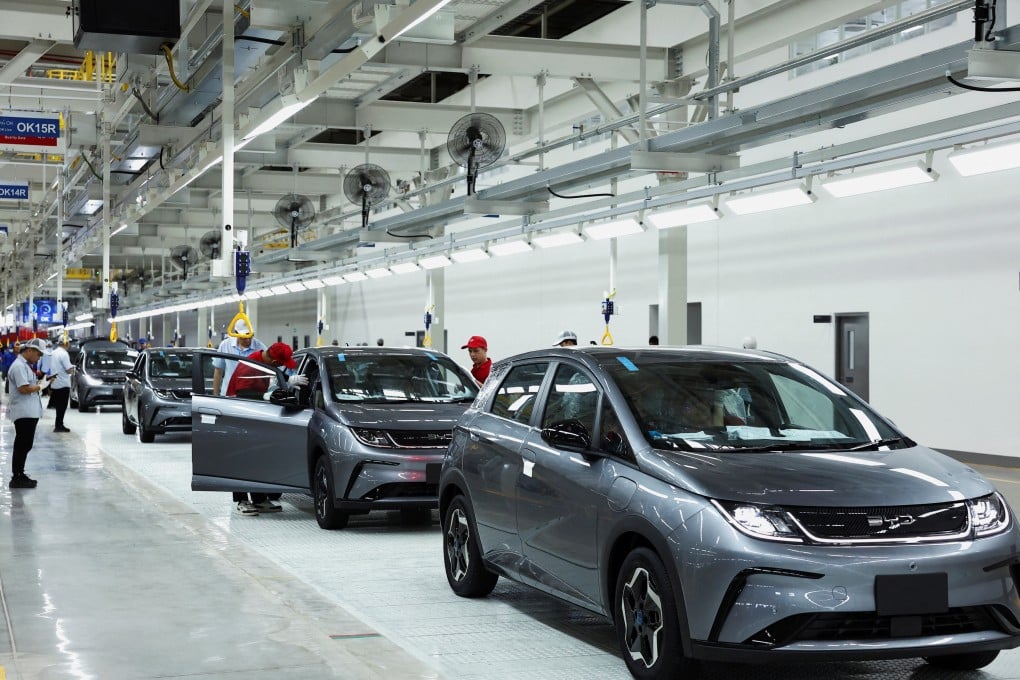Global assemblers may lose US$20 billion a year in China as EVs outsell oil guzzlers: UBS
‘We think foreign automakers need to re-evaluate and adjust their strategies’ in China, bank says

Paul Gong, the head of China automotive research at UBS, said diminished demand for foreign brands will lead to an overcapacity of 10 million vehicles.
“We think foreign automakers need to re-evaluate and adjust their strategies [in China],” he said at a seminar in Hong Kong on Monday.
Gong said leading Chinese carmakers will continue to collect market share and grow their profits during the consolidation. He added that as foreign carmakers cut production and the Chinese government stops funding state-owned producers that are loss-making, some top local firms have the potential to double their profits by 2030.
In spite of the squeezed profits caused by the discount wars, China’s auto market is ending the year with strong momentum. China’s monthly wholesale passenger vehicle sales volume reached 2.73 million units in October, the highest point in the past 10 years, which was up 12 per cent from a year earlier and 9 per cent from the month before, according to the China Passenger Car Association (CPCA). More than half of the passenger cars sold in October were electric vehicles (EVs), the CPCA said.
UBS said global carmakers have been losing market share in China since 2017, but the pace of deterioration accelerated in 2024.